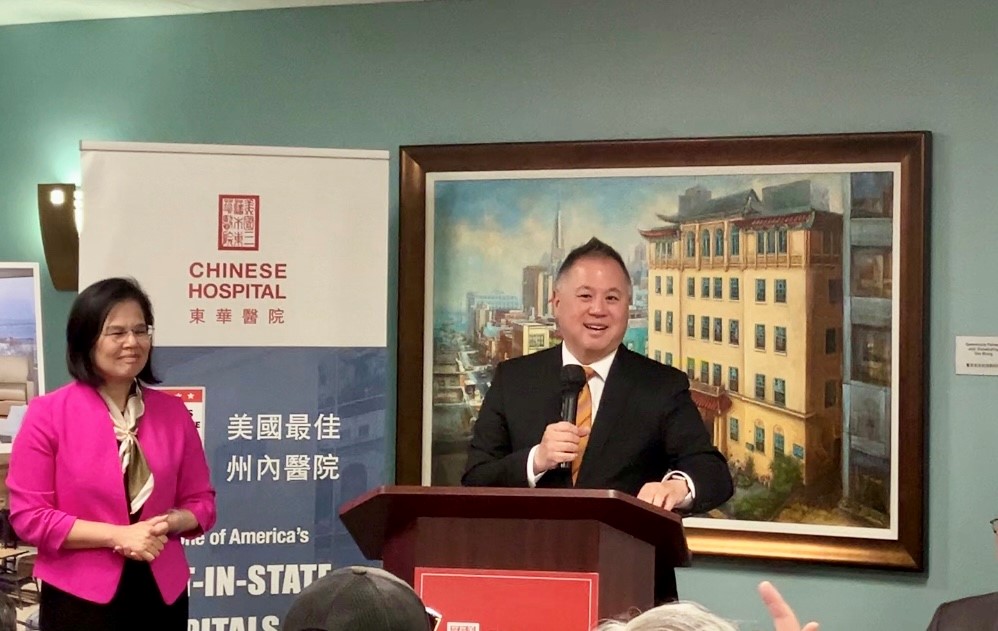
A collaboration between Assemblymember Phil Ting (D-San Francisco) and Chinese Hospital to ease the sub-acute bed crisis locally has reached key milestones, bringing a new sub-acute wing to the Chinatown facility a big step closer to reality.
Phase One of Chinese Hospital’s new wing, dubbed the Mechanical Backbone Project, is now complete with the help of $5 million from the 2022-23 California state budget that Ting secured. Much of the section’s infrastructure required updating and remodeling. With that portion done, Ting announced today another $5 million allocated from the 2023-24 state budget, allowing Phase Two of the construction to begin. This entails building out the 23-bed sub-acute unit itself.
“It’s a terrible situation for San Francisco be in. Demand for these beds is escalating, and we have nothing to offer. Families are forced to turn to other parts of the state. They shouldn’t have to travel great distances to visit their loved ones. We must fill this gap in services, especially when it impacts vulnerable people who have limited resources and rely on the government to provide care,” said Ting.
The shortage of hospital-based sub-acute beds has been an issue on a national, state and regional level. In San Francisco, there are none available. People in sub-acute care have an illness, injury or disease that doesn’t need hospitalization, but still requires round-the-clock, lower-level medical supervision. Such facilities struggle to survive because of the high cost in providing this level of care and low Medicare and Medi-Cal reimbursement rates. Many have to close.
“We express our sincere gratitude to Assemblymember Phil Ting for his unwavering support in securing funding not just once, but twice, for our new subacute care unit project,” said Dr. Jian Zhang, CEO of Chinese Hospital. “The combined $10 million in state funding enables Chinese Hospital to establish the only hospital-based subacute care unit in San Francisco, addressing urgent needs in our wider community. As a part of San Francisco’s healthcare system, we are committed to working closely with city and state leaders to bridge existing gaps. The impact of this funding will be profound, benefiting not only San Francisco but also the wider Bay Area community.”
With no options in San Francisco, local families scramble to find sub-acute care. They’re often forced to spend months finding a place that will take their loved one; and when they finally do, it’s located far away, making visits a hardship.
“I am getting older. If my son can transfer to Chinese Hospital, that would be great for my family,” said Ru Sen Zhao, an older Chinatown resident who travels hours on public transit to visit his child in Daly City.
“We don’t want other families to go through what we went through to find a sub-acute bed for our sister,” said Gloria Simpson, an Excelsior District resident whose sibling was in a facility slated to shut down.
While Chinese Hospital can provide culturally competent care, the new sub-acute beds will be open to all people. The unit is expected to open in about a year, pending licensing by the California Department of Health Care Services after completion of the project.